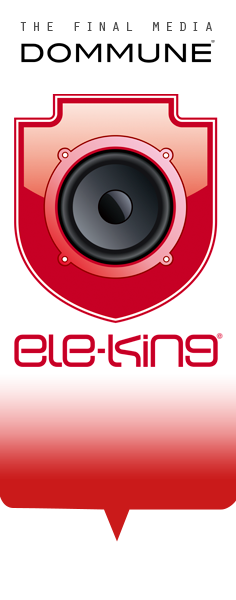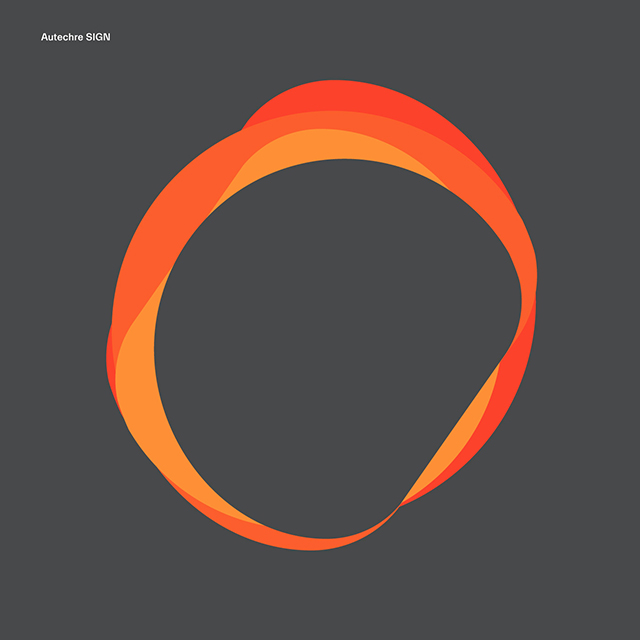MOST READ
- interview with xiexie オルタナティヴ・ロック・バンド、xiexie(シエシエ)が実現する夢物語
- Chip Wickham ──UKジャズ・シーンを支えるひとり、チップ・ウィッカムの日本独自企画盤が登場
- Natalie Beridze - Of Which One Knows | ナタリー・ベリツェ
- 『アンビエントへ、レアグルーヴからの回答』
- interview with Martin Terefe (London Brew) 『ビッチェズ・ブリュー』50周年を祝福するセッション | シャバカ・ハッチングス、ヌバイア・ガルシアら12名による白熱の再解釈
- VINYL GOES AROUND PRESSING ──国内4か所目となるアナログ・レコード・プレス工場が本格稼働、受注・生産を開始
- Loula Yorke - speak, thou vast and venerable head / Loula Yorke - Volta | ルーラ・ヨーク
- interview with Chip Wickham いかにも英国的なモダン・ジャズの労作 | サックス/フルート奏者チップ・ウィッカム、インタヴュー
- interview with salute ハウス・ミュージックはどんどん大きくなる | サルート、インタヴュー
- Kim Gordon and YoshimiO Duo ──キム・ゴードンとYoshimiOによるデュオ・ライヴが実現、山本精一も出演
- Actress - Statik | アクトレス
- Cornelius 30th Anniversary Set - @東京ガーデンシアター
- 小山田米呂
- R.I.P. Damo Suzuki 追悼:ダモ鈴木
- Black Decelerant - Reflections Vol 2: Black Decelerant | ブラック・ディセレラント
- Columns ♯7:雨降りだから(プリンスと)Pファンクでも勉強しよう
- Columns 6月のジャズ Jazz in June 2024
- Terry Riley ——テリー・ライリーの名作「In C」、誕生60年を迎え15年ぶりに演奏
- Mighty Ryeders ──レアグルーヴ史に名高いマイティ・ライダース、オリジナル7インチの発売を記念したTシャツが登場
- Adrian Sherwood presents Dub Sessions 2024 いつまでも見れると思うな、御大ホレス・アンディと偉大なるクリエイション・レベル、エイドリアン・シャーウッドが集結するダブの最強ナイト
Home > Reviews > Album Reviews > Autechre- Sign
長い間、オウテカのファンはふたつの陣営に分類される傾向にあった。デュオが発するあらゆる最新のメッセージを熱心に貪るリスナーたちと、『Tri Repetae』以来、ノンストップで抽象的な自慰行為に堕ちて行っていると感じていた人たちである。後者のほとんどが老人ホームに隔離されているいまとなっては、この論争は、問題がスタイルから量的なものへとシフトしている。過去10年の間のオウテカの一連のリリースは、それぞれの尺が2倍に延び、8時間に及ぶラジオ・レジデンシーを集約した『NTS Sessions 1-4』と題された作品で最高潮に達した。ここにはたくさんの素晴らしい音楽があったが、そこがまた問題でもあった──とにかく膨大だったのだ。
オウテカのアウトプットに魅了された体験が、いつの間にか疲れ果ててしまうものへと変わってしまった人には、『SIGN』 は彼らの世界に戻ってくる良い機会となるだろう。ショーン・ブースとロブ・ブラウンの最近の作品の文脈で考えると、これほどメロディックなアルバムをリリースすること、1枚のCDに収まってしまうほど短いことは、ほとんどラディカルにさえ思える。そして『SIGN』は明らかに『elseq1-5』 と『NTS Sessions 1-4』で聞かれるようなアルゴリズミックな実験の延長戦上にあり、オウテカは、どうやって到達するのか忘れかけていたような所にまで踏み込んでいる。
オープニングトラック“M4 Lema”では、ローラント・カイン風のサイバネティック(人工頭脳的)なノイズが、まるでコンピュータのメインフレームが咳払いをするような、シューッという音の斉射で未来を提示するが、突然、みずみずしく豊かなパッドと骨格のようなヒップホップのビートに変わり、時折サブベースがうねる。続く“F7”では、興味深いメロディが互いのまわりに円を描くように交差しながら、決着することはなく、『Oversteps』で登場していてもおかしくないようなものだが、いまやチューニングは従来の西洋的なものからは大きく外れた所で浮かんでいる。
このトラックは、オウテカが未知のハーモニックな領域に踏み込んだ、より明白な事例のひとつで、ヴァーチャルな楽器を、平均律の暴政から離れるように促している。「esc desc」のシンセサイザーには『ブレードランナー』のような威光があるが、初めて聴くと、ヴァンゲリスがデッカードの空飛ぶ車で乗り物酔いをしているかのようだ。
リピートして聴くことでこの違和感は薄れ、これは時間をかけて、できればまともなヘッドフォンでじっくり聴くべきアルバムであることが分かる。2018年にブースはele-kingに「ぼくはすべてのエレメントがあからさまではない、シネマティックな奥行きに惹かれるんだ」と語っており、『SIGN』 に収録されたトラックのいくつかは活気に溢れ、聴力の限界に達している。 陰鬱なトーンと貧弱な4/4拍子の“psin AM”は、ミックスのエッジの周りで踊る不安定なハーモニーがなければ、ほとんどヴォルフガング・ヴォイトのGASプロジェクトの見失われたトラックと間違えそうだ。オウテカが“sch.mefd 2”で、一定のビートを走らせるのは、他のエレメントとの間の相互作用がいかに予測不可能なものであるかを強調するために残しているのだ。
おそらく最大のサプライズは、このアルバムの音の多くが、どれほど心を奪う響きに聴こえるかということだ。“gr4”には最も牧歌的なフェネスのような、薄織の温かさがある一方、超絶的なクロージング・トラックの“r cazt”は、坂本龍一の「async」時代のプレイリストに並べて入れても違和感がないだろう。オウテカは、エイリアンのように耳障りだと誇張されがちだが、『SIGN』 は彼らのとんでもなく〝ありえねぇ〟美しさを想い出させてくれる歓迎すべき作品だ。
by James Hadfield
For a long time, Autechre fans tended to fall into two camps: listeners who eagerly devoured every fresh transmission from the duo, and people who thought they’d been on a non-stop descent into abstract wankery ever since Tri Repetae. Now that the latter are mostly sequestered in retirement homes, the debate has shifted from questions of style to quantity. During the previous decade, each successive Autechre release seemed to double in length, culminating with the eight-hour radio residency collected on NTS Sessions 1-4. There was a lot of excellent music here, but that was also the problem: there was a lot of it.
If your experience of Autechre’s output has tipped over from enthralled to exhausted, SIGN is a good time to jump back on-board. In the context of Sean Booth and Rob Brown’s recent work, releasing an album this melodic—and short enough to fit on a single CD—feels almost radical. And while SIGN is clearly an extension of the algorithmic experiments heard on elseq 1-5 and NTS Sessions 1-4, it goes places I’d almost forgotten Autechre knew how to reach.
Opening track “M4 Lema” indicates what’s in store, when a volley of swooshing, Roland Kayn-style cybernetic noise—like a computer mainframe clearing its throat—suddenly gives way to lush pads and a skeletal hip-hop beat, bolstered by occasional surges of sub-bass. That’s followed by “F7,” whose intersecting melodies, circling around each other without ever quite resolving, could have appeared on Oversteps—except that they’re floating way outside conventional Western tuning now.
The track is one of the more obvious instances where Autechre venture into uncharted harmonic territory, coaxing their virtual instruments away from the tyranny of equal temperament. There’s a Blade Runner grandeur to the synths on “esc desc,” but on first listen, it’s like Vangelis getting motion sickness in Deckard’s flying car.
The strangeness is less apparent with repeat plays, and this is definitely an album to spend time with, preferably listening through a decent set of headphones. Speaking to ele-king in 2018, Booth said he was increasingly interested in “cinematic depth, where not every element is obvious,” and the tracks on SIGN teem with activity, some of it on the threshold of audibility. With its sepulchral tones and anaemic 4/4 beat, “psin AM” could almost be mistaken for a lost track from Wolfgang Voigt’s GAS project, if it weren’t for the unstable harmonies dancing around the edge of the mix. When Autechre leave a steady beat running, as on “schmefd 2,” it just serves to highlight how unpredictable the interplay between the other elements is.
Perhaps the biggest surprise is how inviting a lot of the album sounds: “gr4” has a gauzy warmth that recalls Fennesz at his most bucolic, while transcendent closing track “r cazt” wouldn’t sound out of place on a playlist alongside async-era Ryuichi Sakamoto. Autechre’s reputation for alien harshness is overstated, but SIGN is a welcome reminder that they can be pretty goddamn beautiful.
ジェイムズ・ハッドフィールド
ALBUM REVIEWS
- Loula Yorke - speak, thou vast and venerable head/ Loula Yorke - Volta
- Actress - Statik
- Black Decelerant - Reflections Vol 2: Black Decelerant
- High Llamas - Hey Panda
- The Stalin - Fish Inn - 40th Anniversary Edition -
- KRM & KMRU - Disconnect
- Cornelius - Ethereal Essence
- Kronos Quartet & Friends Meet Sun Ra - Outer Spaceways Incorporated
- Martha Skye Murphy - Um
- Mouchoir Étanche - Le Jazz Homme
- Taylor Deupree - Sti.ll
- John Cale - POPtical Illusion
- Amen Dunes - Death Jokes
- A. G. Cook - Britpop
- James Hoff - Shadows Lifted from Invisible Hands


 DOMMUNE
DOMMUNE




